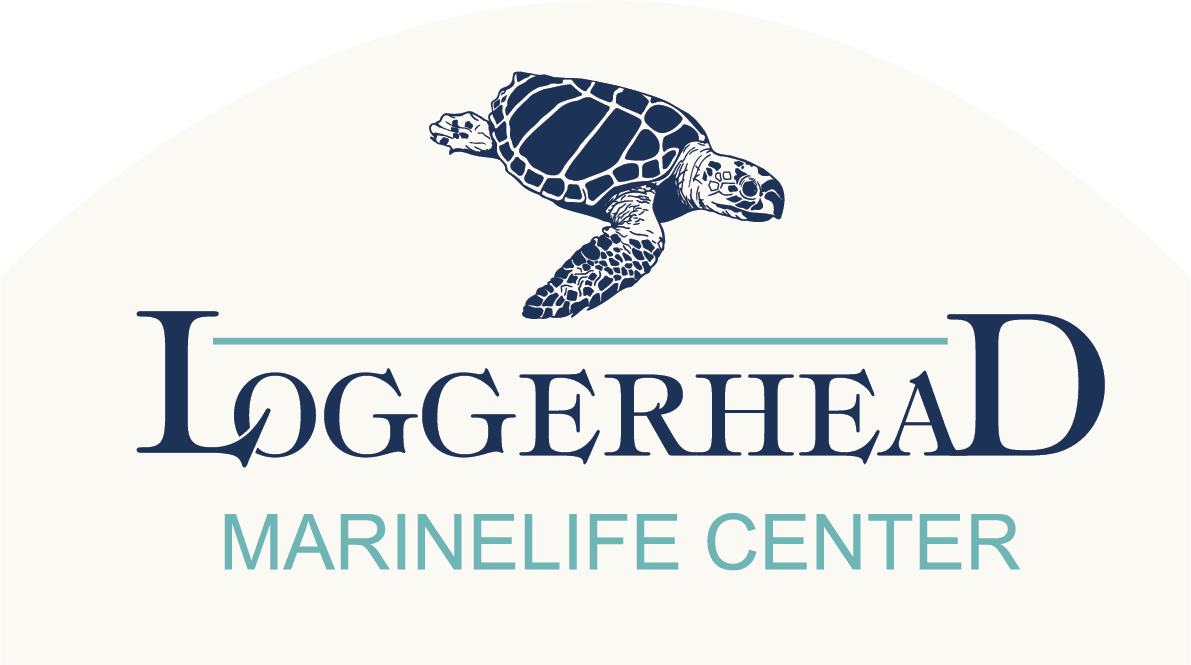“Have you met Heidi Macey?” Hospital Coordinator Nicole Montgomery, CVT inquired as I walked through the doors of the hospital taking photos of newly arrived hatchlings. Quickly, I am introduced to the hospital’s new Veterinary Rehab Extern Heidi Macey. Our Hospital dynamic is ever-changing; global and national relationships have brought interns and volunteers from all over the world to LMC.
Originally from Leesburg, VA, Macey joined our rehabilitation staff for a brief three week extern experience. As a fourth-year vet student at Virginia-Maryland College of Veterinary Medicine, Macey joined LMC as part of her college requirements. Currently, Macey is in a Doctorate of Veterinary Medicine program and plans to work in a small animal and exotic pet practice.

Macey’s relationship with LMC began through searching online for a marine animal veterinary externship, when she discovered that LMC is one of very few sea turtle hospitals in the U.S. that employs a full-time veterinarian. Once realizing she could learn about sea turtle rehabilitation practices and medicine, she jumped on the chance to apply.
As an avid diver, Macey has always admired sea turtles, but had never had the opportunity to work with them. Although sea turtles were new territory for Macey, marine animals were not “I have had experience working with marine mammals, such as dolphins and sea lions, but this was my first turtle experience. I think that every sea turtle that comes to LMC is of crucial importance to save. Sea turtles play a fundamental role in the marine ecosystem overall. Sea turtles deserve to be protected. They are endangered due to human impacts such as habitat destruction, poaching, fishing (bycatch), and climate change.” said Macey.
During her extern experience, Macey could be found feeding the hatchlings in the morning and afternoon. On a typical day, Macey assisted with routine treatments throughout the day, such as nebulization or honey application. An aspect of sea turtle rehabilitation that is often missed by the public eye is the importance of sea turtle husbandry and medicine. Macey informed us “health is dependent on both factors – maintenance of the proper diet, enrichment and housing for the sea turtles is just important as the veterinary treatments they are receiving.”
Beyond routine rehabilitation practices, Macey assisted with sea turtle releases, which were her favorite part of her experience. In a short three weeks, Macey helped release 94 hatchlings and Emmett, a juvenile green sea turtle patient. “I felt like I was really making a difference when I helped release the hatchlings into the ocean, which would have had little to no chance of surviving otherwise. Every turtle rehabilitated and released makes a difference in the endangered population. Releasing Emmett was one of my favorite moments at LMC. It showed that the hard work done at LMC does pay off in the end.” One opportunity Macey did not have was naming a turtle, but if she had she would have named it Sheldon.

As an extern, Macey was immersed in sea turtle rehabilitation, conservation, research, and education. Although she had to return to Virginia, she plans to continue to spread sea turtle awareness. Urging the public to keep the beaches clean and refrain from littering are priorities on her agenda.
When asked why spreading awareness about marine debris pollution is important, Macey said ” It affects a lot more lives than you think. All conservation efforts to sea turtles are helping humans in a way. For example, sea turtles are one of very few species to consume sea grass. The sea grass beds would greatly decline if sea turtles became extinct, and with that would come a sharp decline in many of the marine species that humans harvest. Moreover, when one part of an ecosystem is lost, the rest eventually follow.”
After Macey graduates, she plans to continue to volunteer with marine animals in her free time. Filled with generosity, a full-time job will not deter her from conducting pro-bono work with a marine animal stranding network.
Before Macey returned to Virginia she left us with advice for individuals who want to become involved with marine life research and rehabilitation: “Find a great organization, such as LMC, an aquarium or stranding network to volunteer your time with. Look into marine biology undergraduate or graduate programs. Never stop learning and aim to maintain the knowledge that you have already acquired.”
For volunteer and internship opportunities with LMC, please visit: https://marinelife.org/careers
